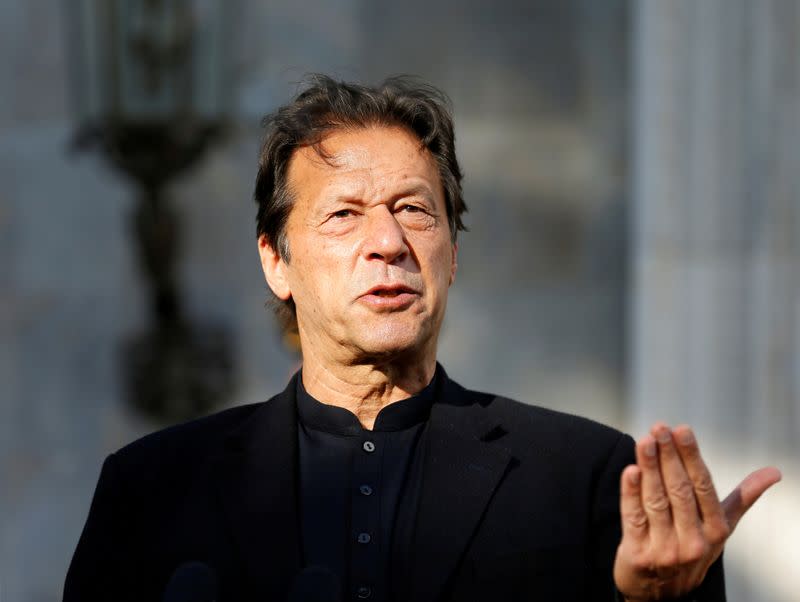Pakistan PM Khan's candidate elected to chair upper chamber

By Asif Shahzad
ISLAMABAD (Reuters) - Pakistani Prime Minister Imran Khan's preferred candidate was declared chairman of the upper house of parliament on Friday despite the government holding a minority of seats there, potentially facilitating the passage of key reforms.
Opposition parties, who say that Khan enjoys support from the military generals who brought him to power in a fraudulent election in 2018, rejected the results of the upper house vote.
Senator Sadiq Sanjrani, who was backed by Khan and his allies, received 48 votes, while the opposition parties' joint candidate, former prime minister Yusuf Raza Gilani, secured 42.
"I declare that Sanjrani has won this election," presiding officer Zafar Ali Shah said on a live TV broadcast of the vote.
In the 100-seat Senate the opposition holds 51 seats against 47 for the government and its allies.
Shah said seven votes for Gilani were rejected due to wrong stamping, thereby handing the government's candidate victory.
"It is robbery," said opposition leader Ahsan Iqbal, adding the results would be challenged.
The new chairman was chosen after elections were held for 37 recently vacated seats in the upper house, which earned Khan and his allies extra seats.
Although the government still lacks a majority in the Senate it would now have a comfortable majority in any joint session of both houses of parliament, in the event that opposition parties block legislation in the upper house.
This should smooth the way for key legislation, including reforms sought by global institutions such as the International Monetary Fund and the Financial Action Task Force, the money laundering watchdog.
"There are five or six laws we have to pass for the IMF. That can only happen if the Senate cooperates, and if it doesn't cooperate, they will have to go for a joint session of parliament," said Ahmed Bilal Mehboob, head of an independent research organisation.
(Additional Reporting by Umar Farooq in Islamabad; Editing by Gareth Jones)


